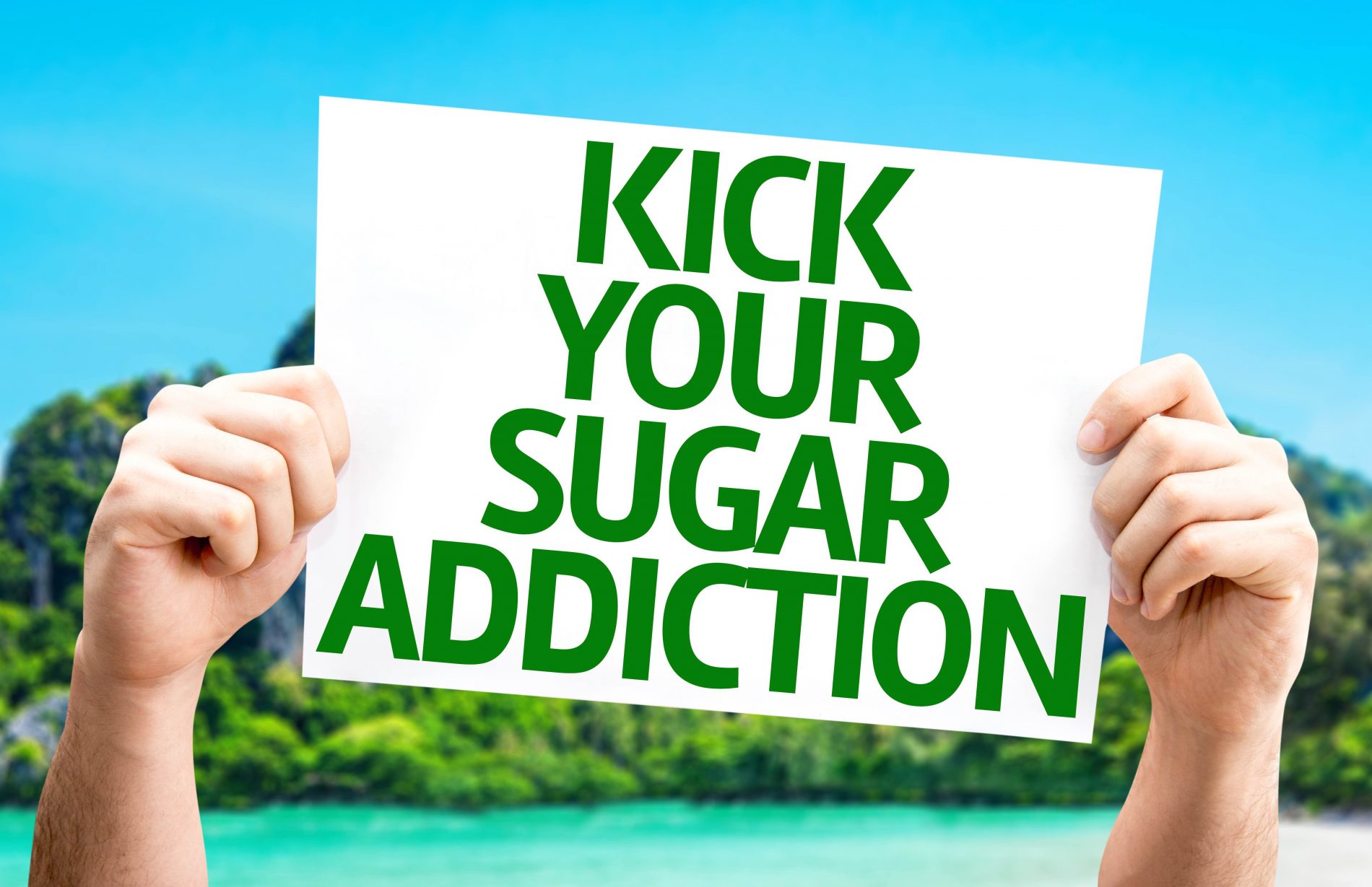Do you feel like sugar rules your life? Is it all you can think about? Do you just get finished eating one meal and you can’t stop craving something sweet to finish off the meal? Some call it a sweet tooth, others call it a sugar addiction.
Luckily, there are ways to eliminate sugar from your diet and get the addiction under control before it wreaks havoc on your health and weight.
So why do sugar cravings tend to kick in just after a meal? The balance of sugar and fat in the body intricately impacts your cravings. Think back to the last heavy meal that you ate. Maybe it was a greasy burger or a steak and potatoes, or a high-fat, creamy pasta dish. Almost immediately upon finishing the meal, did the sugar cravings kick into high gear? But why is that? Well, consuming meals that are high in fat tend to create an immediate craving for sugar. In comparison, a healthy salad, or lower fat content meal usually doesn’t create the same wicked sugar cravings.
Eating frequent high sugar meals or snacks can also create a cycle of sugar cravings that recur throughout the day. For instance, you eat a sugary cereal for breakfast, and then mid morning, your energy crashes and you are craving something sweet, so you eat a granola bar or donut, or drink a high-sugar beverage. Then, again mid-afternoon, your energy crashes, so you reach for a chocolate bar. Breaking this cycle is key to getting a sugar addiction under control.
Break the Sugar Addiction
The best way to get your cravings under control is to break up with sugar. Easier said than done, I know. But with these tips, you’ll be on your way to getting a handle on the sugar addiction.
- Identify what food sources your sugar consumption comes from. Beverages can be one of the worst culprits of sugar. Focus on drinking lots of water and eliminating (or at least limiting) the consumption of coffee, specialty coffee drinks, tea, pop, juice, alcohol, milk and energy drinks.
- Stop buying sugar laden foods. Things like cereal, granola bars, yogurt, processed foods, and baked goods are all extremely high in added sugar. Although many of these foods are touted as healthy options, the added sugar content dictates otherwise.
- Substitute with fruits and vegetables. Although fruits and vegetables naturally contain sugar, they are much more easily assimilated by the body and utilized for energy.
- Change your routine. If you tend to move right from dinner to dessert without a breather in between, it may be time to change up your routine. Take a walk, do the dishes, prepare your lunch for the following day, meditate, or sit outside and enjoy the fresh air. Give yourself a minimum of thirty minutes between dinner and dessert. Usually during that time, the sugar cravings will have subsided.
- Identify why you gravitate towards sugar. Is it a coping method that you use to combat stressful situations? Do you use it as a reward after a long hard day at the office? Changing your relationship with food will allow you to mentally distance yourself from it.
Jo-Anne Richardson has almost a decade of experience managing a chiropractic office and educating patients on how chiropractic can allow your body to express optimal health. She is a Registered Holistic Nutritionist and holds a Degree in Communications. She loves to experiment with raw vegan recipes, loves to salsa dance, travel and learn new holistic health information to share tips with everyone who visits the office.


